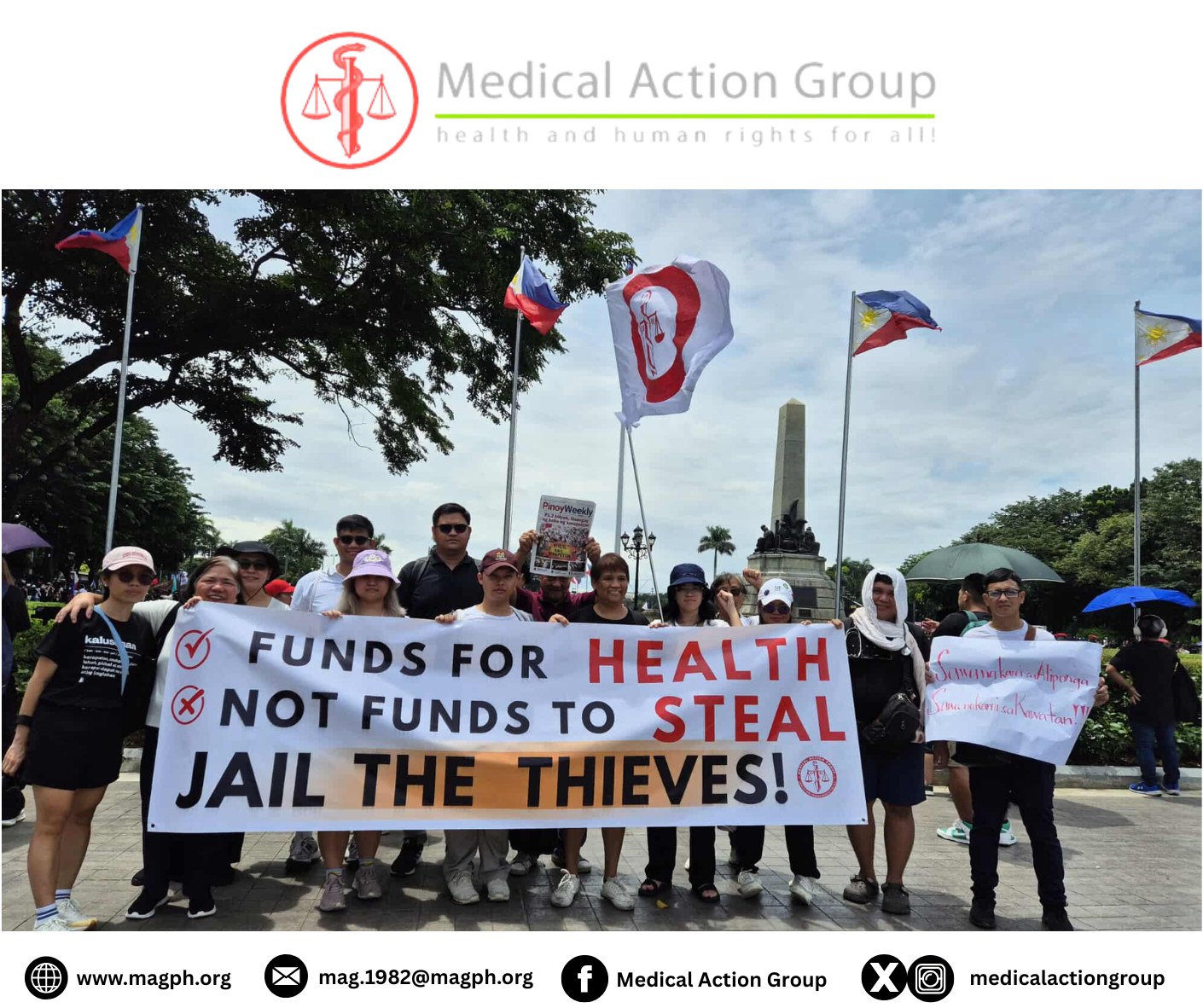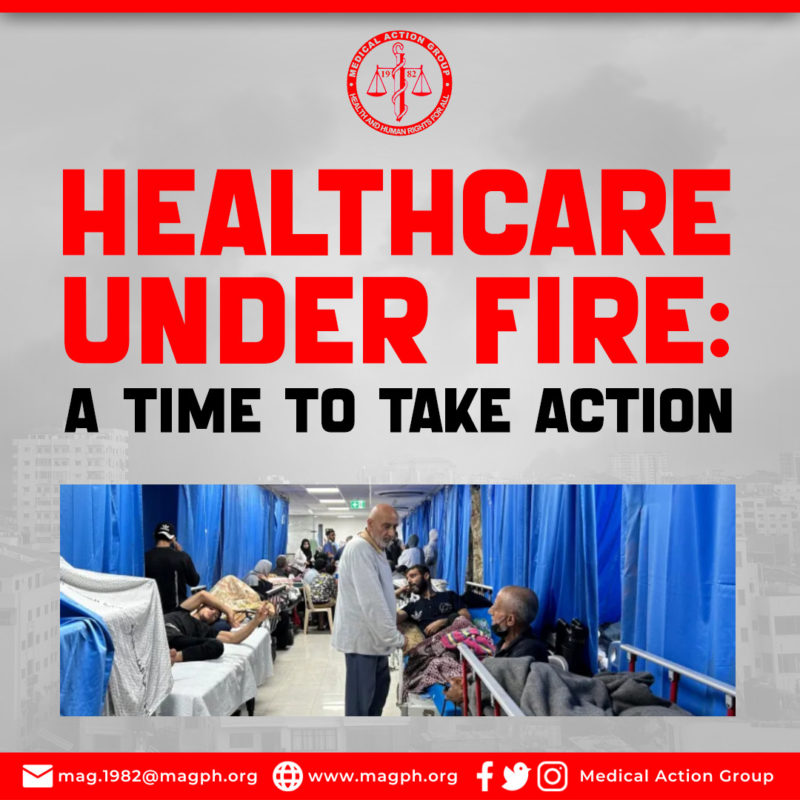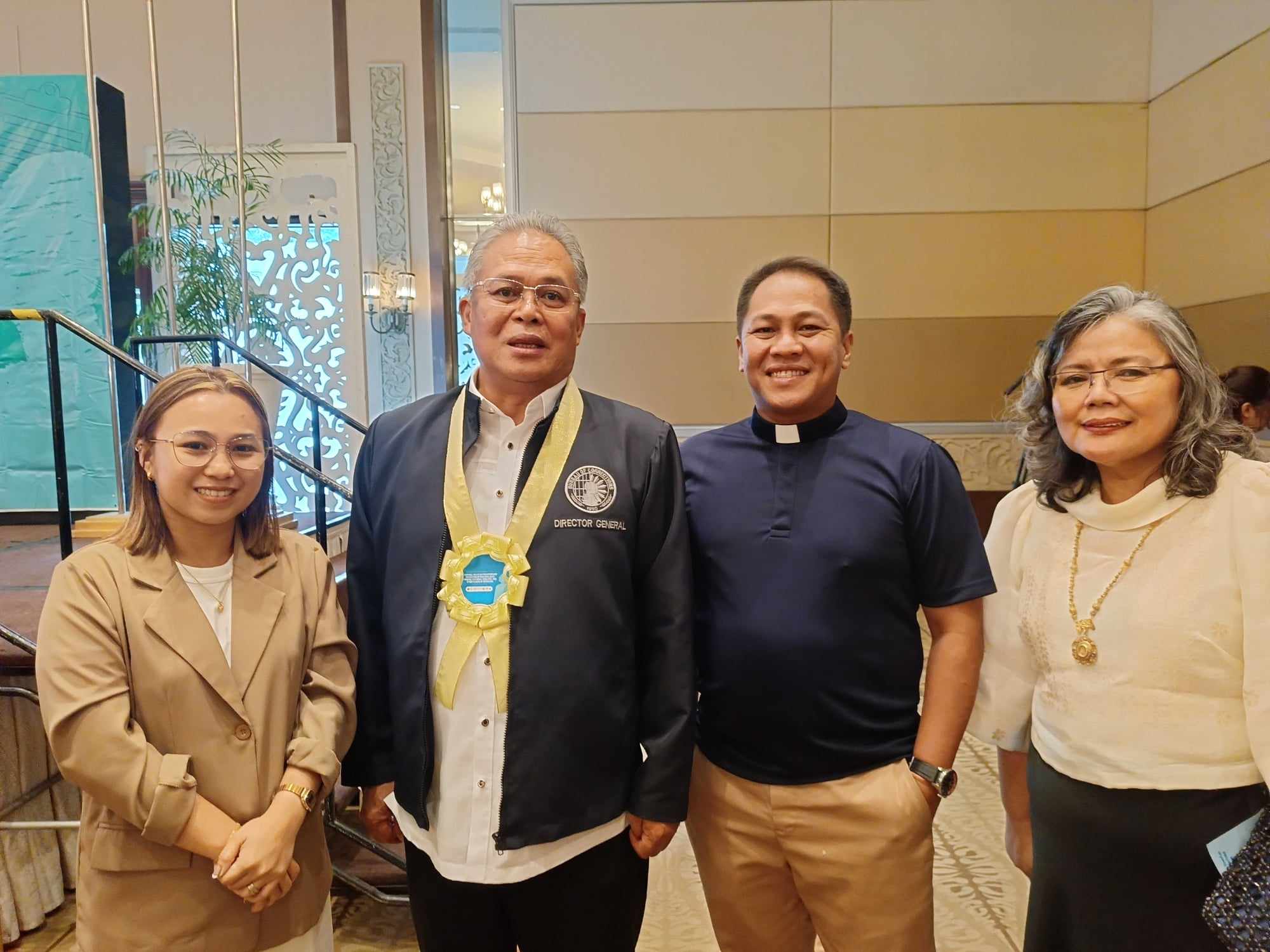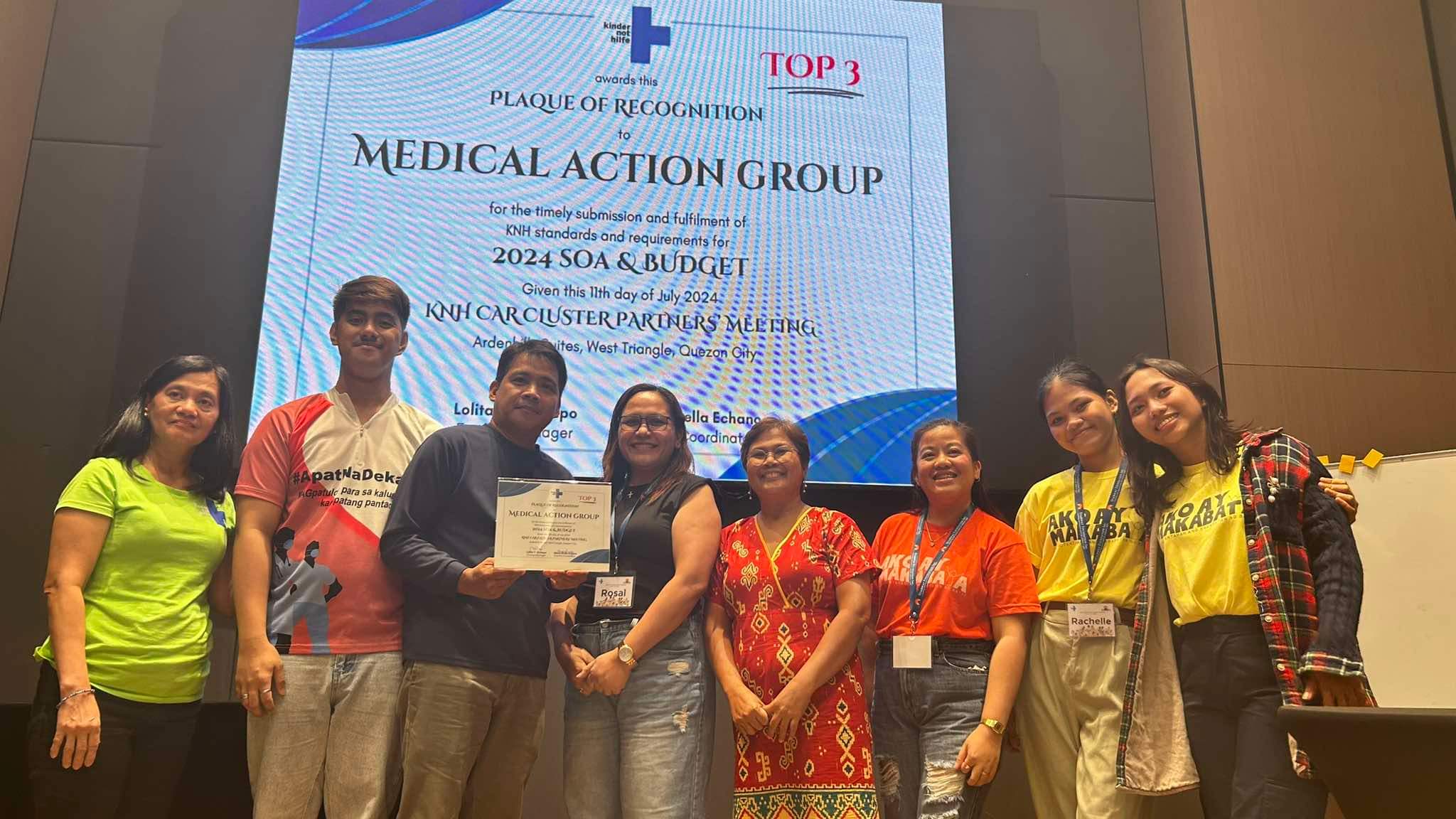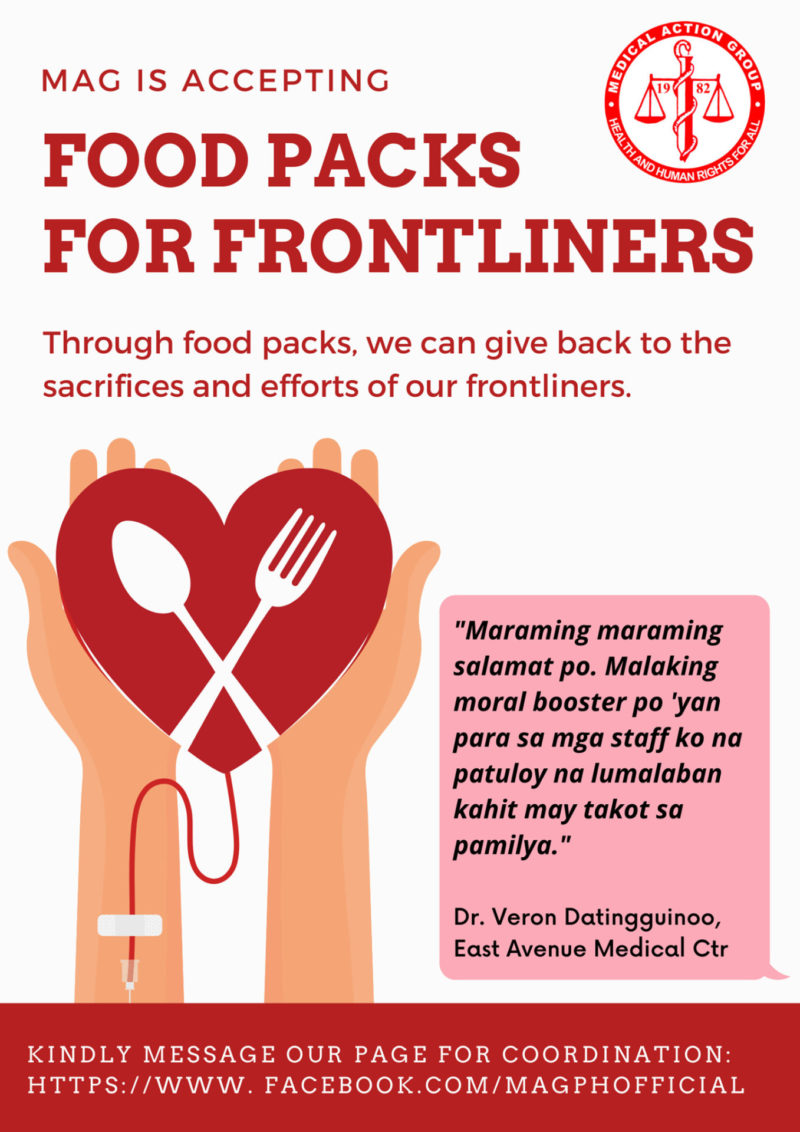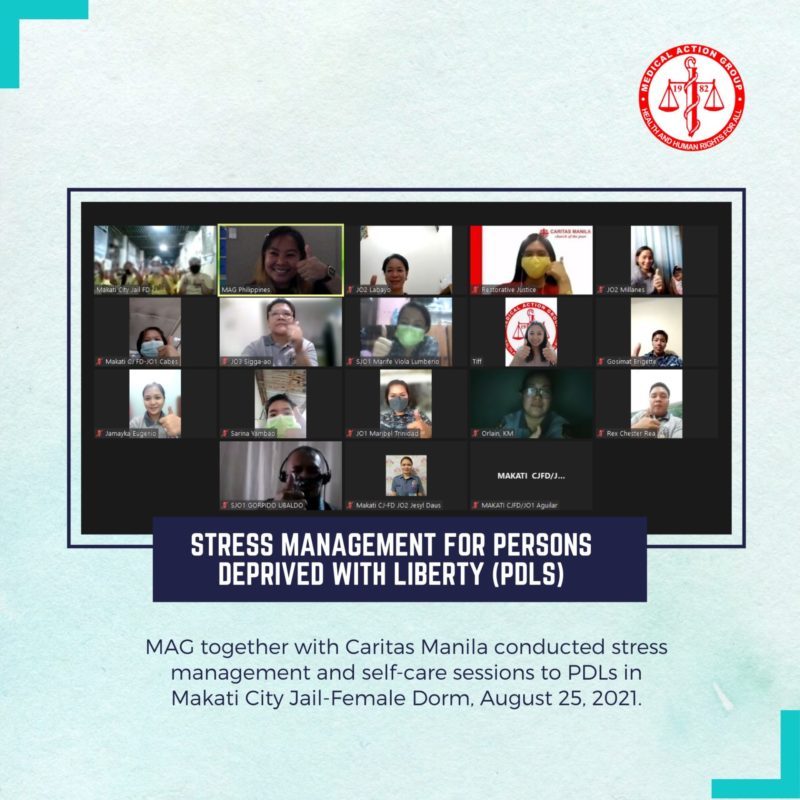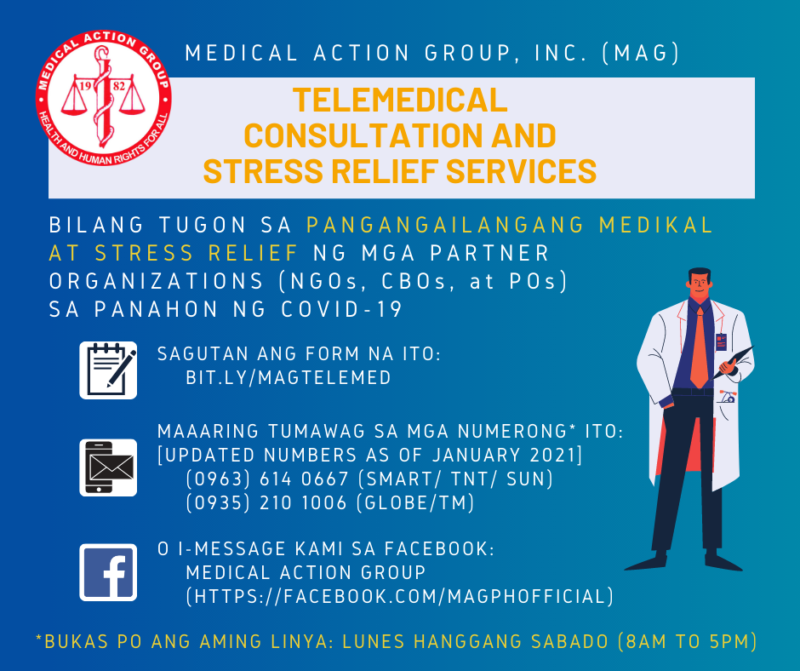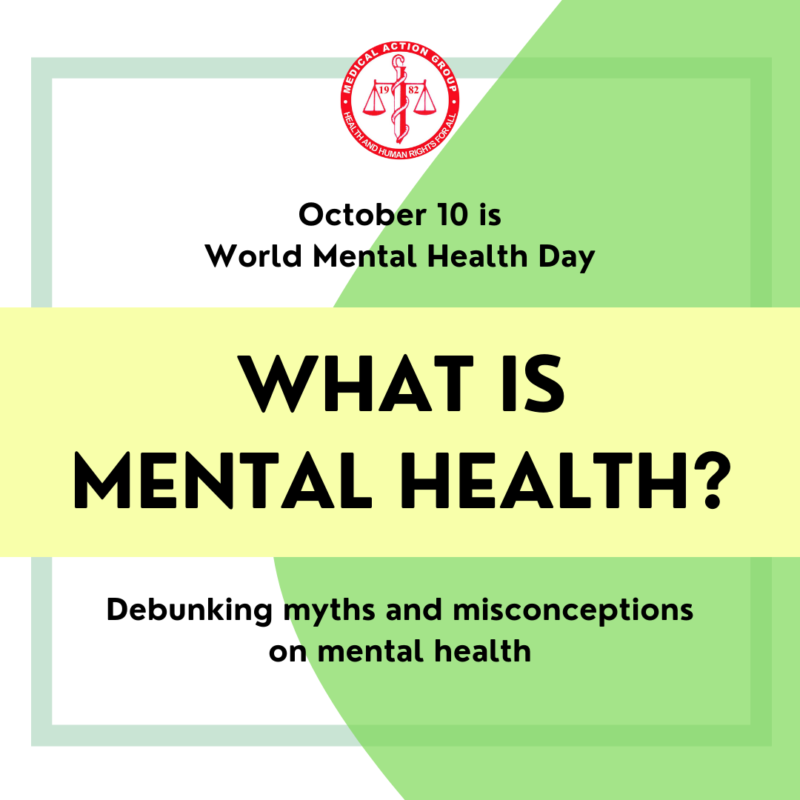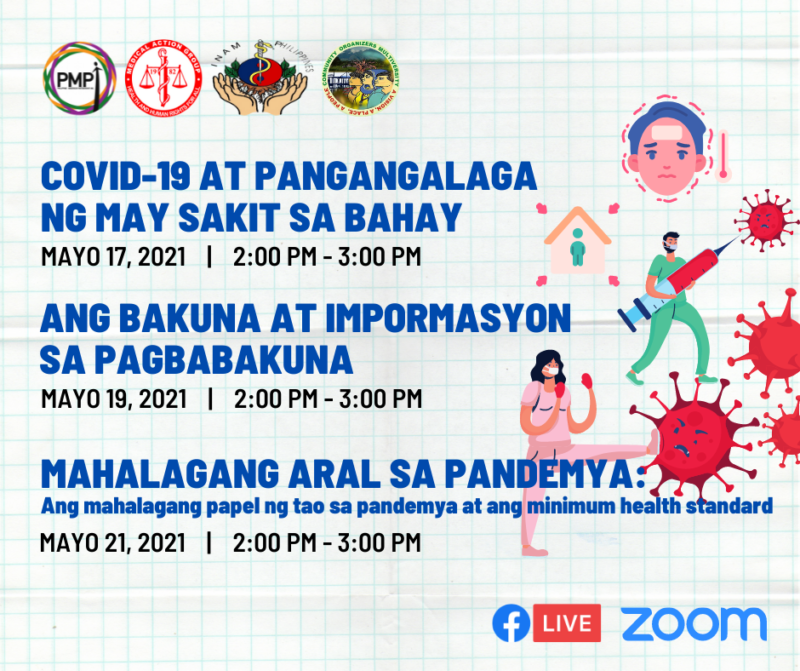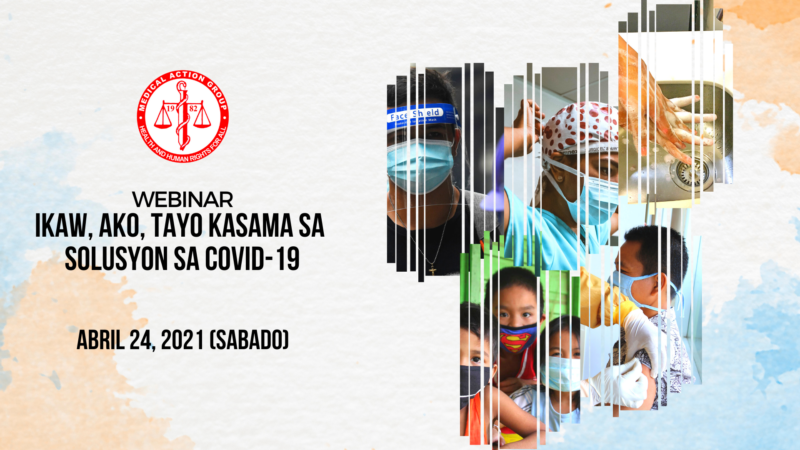Featured Articles
-

MAG stands united with the Filipino people in the nationwide Trillion Peso March at Luneta Park, Manila — raising our voices against corruption and demanding accountability!
#NoToCorruption #AccountabilityNow #September21st
-

Healthcare under Fire: A Time to Take Action
As a member of the medical community, the Medical Action Group is appalled and deeply saddened by the current distressing situation in Palestine, where healthcare facilities and workers are under attack. The ongoing bombing campaign by Israel has not only destroyed hospitals and clinics but has also claimed the lives of hundreds of healthcare workers,…
-

Breaking the Legal Chains: Empowering Women Human Rights Defenders
The Medical Action Group (MAG) welcomes the long-anticipated decision of a Muntinlupa Regional Trial Court to grant bail to former Senator Leila De Lima, signifying a legal triumph. While her temporary release represents a positive political development, MAG ardently urges the court for the expeditious dismissal of the remaining baseless charges lodged against her.
Training and Advocacy Events
-

MAG stands united with the Filipino people in the nationwide Trillion Peso March at Luneta Park, Manila — raising our voices against corruption and demanding accountability!
#NoToCorruption #AccountabilityNow #September21st
-

MEDICAL ACTION GROUP ATTENDS CEREMONIAL SIGNING OF NATIONAL POLICY ON HEALTHCARE IN DETENTION FACILITIES. July 17,2024.
The Medical Action Group participated in the ceremonial signing of the national policy for the promotion and protection of health in jails, prisons, custodial facilities, and other places of detention at the Manila Hotel last Monday. The Bureau of Corrections (BuCor) and the Department of Health (DOH) signed the policy, ensuring 24/7 healthcare access for
-

MEDICAL ACTION GROUP AWARDED FOR TIMELY FULFILLMENT OF KNH REQUIREMENTS. July 11, 2024.
The Medical Action Group was awarded the Plaque of Recognition for the timely submission and fulfillment of KNH standards and requirements for the 2024 SOA & Budget during the KNH CAR Cluster Partners Meeting held on July 11 at West Triangle, Quezon City. This recognition underscores the Group’s dedication to maintaining high standards and its
Services and Documentation
-
FOOD PACKS FOR FRONTLINERS
MAG is now accepting food pack donations to be distributed to our front liners. Let us help them in these crucial times and give back to their sacrifices and efforts. You may send us a message on our Facebook Page for coordination.
-
Stress Management for Persons Deprived of Liberty (PDLs) in some Metro Manila Jails
MAG believes that persons deprived with liberty (PDLs) are to be treated with inherent dignity and rights, including the right to health. In observance of COVID-19 health protocols, jail visitations are limited to E-Dalaw where the PDLs can connect to their families and relatives through online platforms. To help PDLs cope with this situation, MAG
-
Telemedical Consultation and Relief Services for Partner Networks during the COVID-19 Pandemic
In order to respond to the medical needs and stress relief of partner organizations (including non-government organizations, community-based organizations, and people’s organizations) during the COVID-19 pandemic, MAG has launched its teleconsultation services wherein networks and community partners are able to access medical and stress relief consultation and services through phone and online.
Capacity Building Resources
-

OCTOBER 10 IS WORLD MENTAL HEALTH DAY – COMBATTING STIGMA AND DISCRIMINATION
OCTOBER 10 IS WORLD MENTAL HEALTH DAY Stigma and discrimination directly affect people’s access to mental health services. Thus, this is an equally important task with ensuring that mental health services across all sectors (workplace,…
-

WEBINAR SERIES: A year in pandemic: COVID-19 care, vaccination, and lessons learned
A 3-part webinar series was held by PMPI, MAG, INAM and COM which encouraged…
-

Webinar on COVID-19 management, care, and prevention
Inaanyayahan kayo ng Medical Action Group sa aming natatanging webinar upang malaman ano ang…







